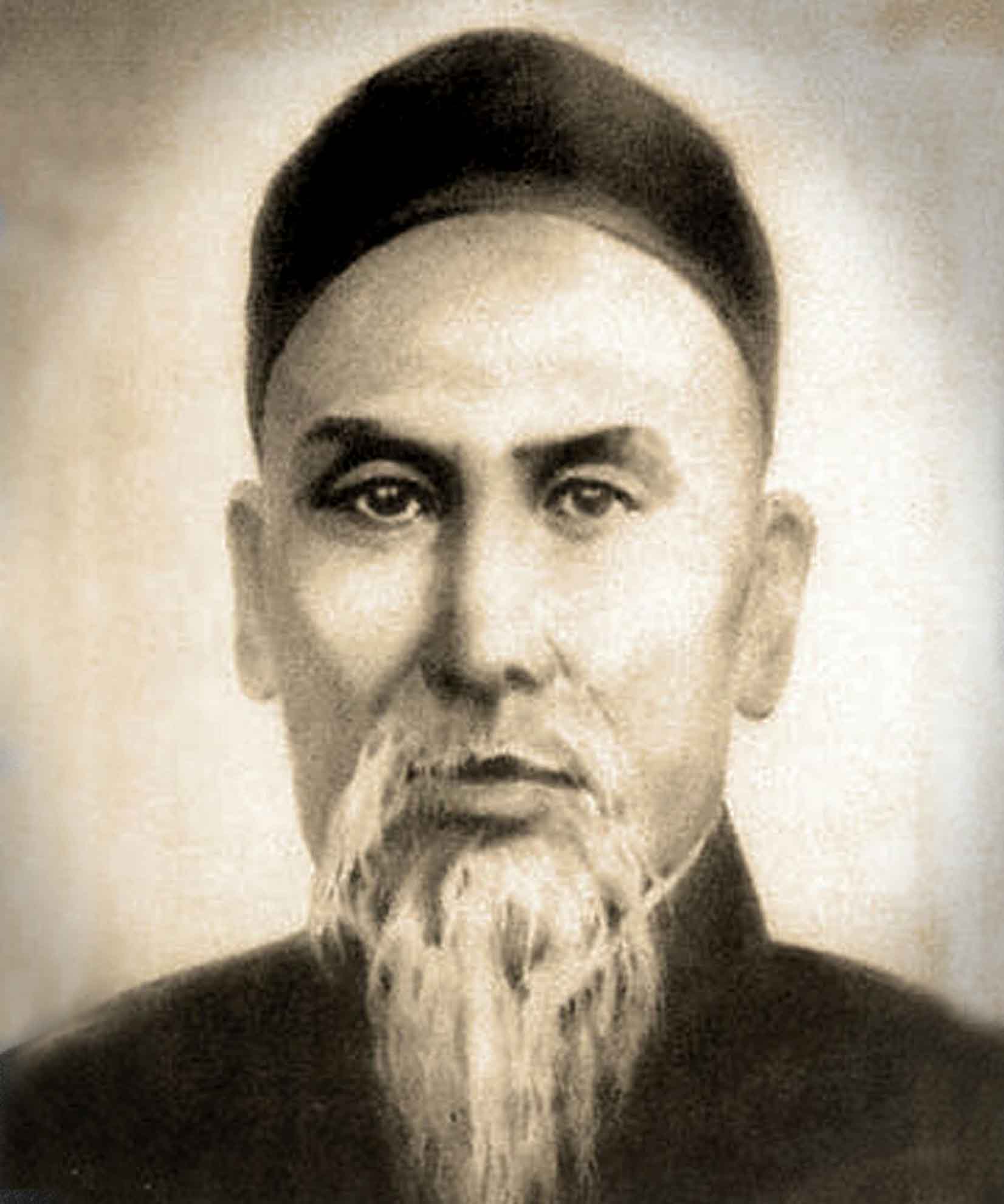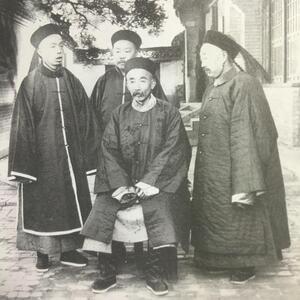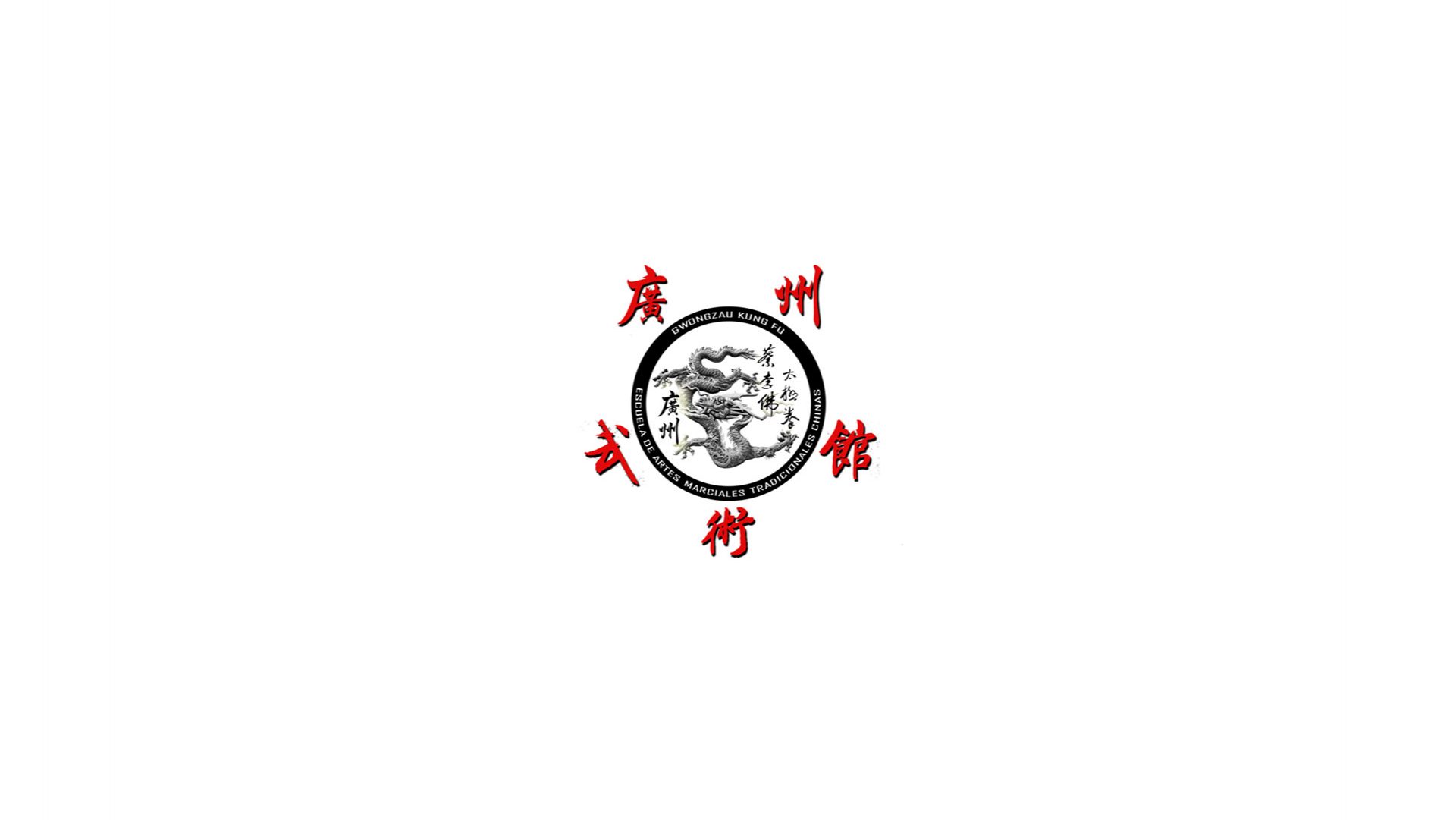Introduction:
Yáng Fúkuí 楊福魁, better known as Yáng Lùchán 楊露禪, was a master of Tàijíquán 太極拳 and one of the greatest martial artists of his time. He is considered the founder of the Yáng style of Tàijíquán 楊氏太極拳 and was an essential figure in the popularization of this martial art.

Portrait of Yáng Lùchán 楊露禪.
Origins:
Yáng Lùchán was born in Guǎngpíng 廣平, in the Yǒngnián 永年 area of Héběi 河北 province, in 1799, into a very poor family. It seems that at the young age of ten he entered the service of the Chén 陳 clan in the family village (Chénjiāgōu 陳家溝), in Hénán 河南. In this village the style that we know today as Tàijíquán was taught, which was then called Miánquán 棉拳 (Cotton Boxing) or Ruǎnquán 軟拳 (Soft Boxing).
Accounts of how he got there differ. Lǔ Shènglì 魯勝利 (Combat Techniques of Taiji, Xingyi, and Bagua: Principles and Practices of Internal Martial Arts) says he was sold there as a "slave" to Chén Déhú 陳德瑚. Fu Zhòngwén 傅鈡文, in his book dictated by Yáng Chéngfǔ 楊澄甫, tells us that it was Lùchán himself who went to Chén village looking to earn a living.
Chén Wēimíng 陳微明, in his book Tàijíquán Shù 太極拳術 (The Art of Tàijíquán), says that Yáng sold all his possessions so that he could go learn from the Chén family. Surely, Yáng already had a training in martial arts when he began to learn Tàijíquán, and in case of paying attention to Chén Wēimíng, it is understood that he had already heard of this style.
Chén Déhú had invited Chén Chángxìng 陳長興 to teach at his home. Again, Lǔ Shènglì says that Chén Chángxìng used Yáng frequently to demonstrate his techniques, and thus Yáng had the opportunity to learn.
Another popular legend says that, since the transmission of the family style outside the clan was forbidden (by then the Tàijíquán was the patrimony of the Chén family), Yáng was not allowed to learn, so he observed while doing his work in the family home and then practiced in secret.
Chén Wēimíng tells us that Yáng was already learning from Chén Chángxìng when one night he heard screams of people training and came to look from a window without being seen, watching Chángxìng teach special skills to certain students behind closed doors, and that since then he came at night to watch and was practicing and learning secretly. Finally, Chángxìng saw that Yáng was honest and taught him personally until he became the best of his students.
Be that as it may, the truth is that Yáng ended up being accepted as a disciple and learning Tàijíquán. In addition, Yáng received a formal education, learning to read and write.
Yáng lived in Chénjiāgōu for thirty years until Chén Déhú's death, at which point he was allowed to return to his hometown. There, Yáng could not find work and began teaching Tàijíquán to earn a living. He quickly gained fame; practitioners of other styles came to challenge him, and Yáng won in all duels, earning the nickname Yáng Wúdí 楊無敵, "Yáng the Invincible".
It seems that in one of these duels he seriously injured a person and, fearing that his family would seek revenge, Yáng decided to leave his home and move to the capital, Běijīng 北京.
Life in Beijing:
In Běijīng he also had a hard time to find a job, until he was finally hired by a certain Zhāng Fèngqí 張鳳岐 as tutor of his two sons, living in Zhāng's house. This Zhāng had a factory of soy sauce and salted vegetables that supplied the imperial court.
According to Lǔ Shènglì, Yáng did not mention his martial skills when entering the service of the Zhāng family. This is contradicted by the version of Yáng Chéngfǔ and Dǒng Yīngjié 董英傑 in Tàijíquán Shǐyòngfǎ 太極拳使用法 (Methods of application of Tàijíquán). According to this version, it was Zhāng himself who, having heard of Yáng Lùchán's fame, had him called into his presence.
In the western part of Běijīng lived a rich man named Zhāng in a large mansion. This Zhāng was passionate about martial arts; he had more than thirty guards serving in his house, and he himself was a fervent practitioner.
When he heard about Yáng Lùchán, he sent a friend of his to invite him to his house. When Yáng arrived, Zhāng saw that he was a small and thin man, with an innocent face and wearing vulgar clothes. Then Zhāng received him impolitely, offering a very poor meal as a welcome. Yáng, realizing the situation, poured wine in his cup to drink himself, ignoring the rest. This angered his host, who said he had heard of Yáng Lùchán, but doubted that Tàijíquán could be used to fight for real.
Yáng replied that there were three types of people against whom his style was useless. When Zhāng asked what these types of people were, Yáng replied: "The bronze people, the iron people, and the wooden people. It's hard to fight with them, but with the rest it's easy."
Zhāng proposed the best of his men, named Liú 劉, who could lift more than 200 kilos, to face Yáng.
Liú attacked fiercely, falling on Yáng like a mountain, his fists whistling like the wind. Yáng used his right hand to accompany Liú's attack and make him land on emptyness, and slapped him with his left hand, sending him thirty feet away.
After this demonstration, Zhāng apologized and asked his cooks to prepare a proper banquet, paying homage to Lùchán as a teacher.
(Adapted from Tàijíquán Shǐyòngfǎ 太極拳使用法, Methods of Application of Tàijíquán).
One day, there was an incident at Zhāng's factory. Yáng Lùchán, hearing the noise of struggle, went out to see what was happening, and saw that the factory workers had been attacked and reduced by twenty assailants from another neighboring factory after a dispute. It seems that Yáng defeated the assailants alone, while smoking from his pipe. Although this event is clearly exaggerated, it brought Yáng Lùchán to fame as a martial arts master, and since then he began teaching at Zhāng's house to guards and family friends.
One day, a stranger appeared there to visit Yáng and, when he received him, he violently attacked him. Yáng defeated the man, who escaped, and had the suspicion that he had been sent from Yǒngnián as revenge for the man he wounded in a duel.
Determined to leave the place again, he was convinced by Zhāng to stay, and Zhāng introduced him to Prince Duān Jùn 端郡王 of the imperial court, who was passionate about martial arts, with the idea of proposing him as an instructor of the imperial family. Thus, Duān* offered Yáng good living conditions and security in exchange for instruction, and Tàijíquán flourished in the Forbidden City (紫禁城 Zǐjìnchéng), achieving great renown. Yáng Lùchán's position was soon expanded to train the emperor's guards as well.
Yáng taught at Běijīng for twenty years, and died in 1872.

Prince Duān Jùn 端郡王 (seated), whom Yáng Lùchán instructed.
Anecdotes about Yang Luchan:
Yáng Chéngfǔ and Dǒng Yīngjié have left us several anecdotes regarding the martial arts of Yáng Lùchán:
Encounter with a Buddhist monk
On one occasion, a Buddhist monk came to visit Yáng. His attitude was kind and respectful, but suddenly he attacked him with his fists. Yáng reacted quickly and defeated him with a single move. Immediately, the monk apologized for his attitude, introduced himself as a certain "Monk of Pure Virtue" 淸德僧 coming from Shàolín 少林, and asked Lùchán about his art.
First, the monk wanted to know how, despite having been attacked by surprise, Yáng had been able to overcome him, to which he replied that it was about "paying attention to every moment". When he inquired about Yáng's speed, he replied that it was about "releasing energy like releasing an arrow."
When asked about the secret of the Tàijíquán's prowess, Yáng made a demonstration of skill with a swallow he had in his house, accustomed to human contact. Holding it on his hand, the bird tried to take flight, but was unable to do so. The swallow needed to propel itself with its feet on the hand of Master Yáng, but he made his hand "suddenly disappear, and suddenly manifest", so that the swallow had nothing to push on. The monk was extremely amazed, and convinced that this ability was magical.
(Adapted from Tàijíquán Shǐyòngfǎ 太極拳使用法, Methods of Application of Tàijíquán).
On Yáng Lùchán's ability with the spear, again Yáng Chéngfǔ and Dǒng Yīngjié mention the following story:
Yáng was a kind man and always considerate of others. When he had some extra money, he was generous and helped his friends. One day a friend asked him to lend him a hundred silver coins, pledging to return them within a year.
Yáng, who was in a good mood, proposed his friend to grab the tip of a spear with both hands, and he would lift him to the roof, and said that if he was not able to do so, his friend could take the money without having to return it.
Yáng, "using intention to move energy," shook his spear and lifted his friend to the roof. The friend was impressed and Yáng ordered a ladder to be brought for him to go down, after which he gave him the hundred silver coins.
(Adapted from Tàijíquán Shǐyòngfǎ 太極拳使用法, Methods of Application of Tàijíquán).
Legacy:
Yáng Lùchán had three sons, to whom he transmitted the art of Tàijíquán; we will talk about them on another occasion. The style he transmitted is known as the Yáng style of Tàijíquán (楊氏太極拳 Yángshì Tàijíquán), which would reach enormous diffusion during the twentieth century and which today is one of the most practiced styles around the world.
Notes:
* Duān must have been very young when Yáng Lùchán became his instructor. Prince Duān was born in 1856, and Yáng died in 1872, at the age of 73, so this time would correspond to the last stage of his life.
Sources:
Lu Shengli, Combat Techniques of Taiji, Xingyi, and Bagua: Principles and Practices of Internal Martial Arts. Blue Snake Books, 2006.
Fu Zhongwen, Tai Chi Chuan, Manual del Estilo Yang. Ediciones Tutor, S.A., 2008.
Yáng Chéngfǔ 楊澄甫 y Dǒng Yīngjié 董英傑, Tàijíquán Shǐyòngfǎ 太極拳使用法 (Methods of Application of Tàijíquán).
Chén Wēimíng 陳微明, Tàijíquán Shù 太極拳術 (The Art of Tàijíquán).
